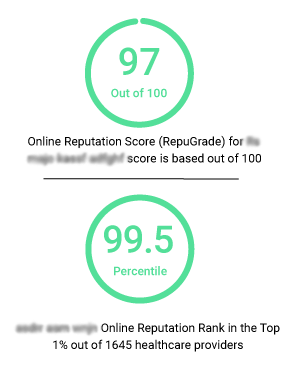6 Healthcare Marketing Trends In 2018: How to Leverage Them

Healthcare marketing is in evolving phase and physicians are decision makers in this transformation. In the new healthcare delivery model based on transparency, quality outcomes, and patient satisfaction, patients are now at the center of every healthcare marketing strategy. Here are healthcare marketing trends in 2018 that you need to implement in your marketing strategy for providing better patient experience and generating more revenue for your healthcare business:
-
Physicians Are Tasking Marketers to Improve Employee Culture
Because patient satisfaction is now the biggest factor for hospital revenue, physicians and hospital executives are now looking towards marketers to device strategies and install processes that are focused on helping to improve patient experience. Marketers on the other hand are providing private interactive platforms to patients to bring up issues, and also holding up surveys that are focused on improving patient experience and care by addressing internal culture problem.Gartner predicts that by 2018, more than 50 percent of organizations will implement significant business model changes in their efforts to improve customer experience. Source: Gartner
-
Content Marketing Is Fetching Huge Demand
Content is really proving to be a king in healthcare marketing. As patients are now becoming avid researchers, they want more and more content that could fulfill their queries. Healthcare brands are leveraging it with brand content and sponsored content or guest posts such as blogs, articles, explanatory videos, etc.One in every three Americans has gone online to figure out a medical condition. 72% of internet users say they looked online for health information within the past year. Source: Pew Research
-
Health Explanatory Video Will Be in Special Demand
Explanatory videos are the dearest source of information and education for users, including patients. After all, who will want to read an entire 1000 or 2000 words article if they can simply understand the topic by watching a 2 minute explainer video. Health explanatory videos about causes and symptoms, treatment and processes are the most searched for and viewed ones among users, and the same will be in trend next year. Also, research says that your patients are 4 times more likely to watch videos about a topic than reading a blog on the same.
Out of the various types of videos, live videos on social media is said to attract the most attention (that's also true for healthcare videos). And live videos are mostly watched on mobile devices such as smartphones, tablets, and laptops. So, it won't be surprising if doctors get more and more busy creating mobile live videos or explanatory videos in 2018.The average viewer is expected to watch 36 minutes of online video per day on a mobile device, as opposed to 19 minutes on a computer. Source: Recode
-
Mobile-Friendly Websites and Health Apps Will Occupy the Market
Google is expected to launch its mobile first algorithm in the early 2018. This means that your website needs to be ready to function seamlessly on all kinds of mobile devices such as smartphones and tablets. The same goes with the content on it that can include blogs, articles, infographics, explanatory videos, because Google will prioritize mobile content and use it to decide how to rank search results.
Progressive web apps can be run on any platform, desktop, mobile or tablet, and they can become a great way to engage your patients. For example, you can bring together research-based workout advice with a short, interactive exercise instruction in an app that your patients will love to use for a healthy lifestyle.More than 61% people have downloaded some kind of a mHealth apps, and 80% of physicians use smartphones and medical apps. 93% of them believe that mobile health apps can improve patient's health. Source: Greatcall
-
Doctors Will Focus on Strengthening Social Media Presence
Social media engagement will gain greater importance as it helps doctors build credibility and trust with the online community, and measure response from their audience. We will see more and more doctors connecting with their relevant audience on Facebook, Twitter, LinkedIn, etc., to build an online community that knows them and keep sharing good posts with their network of online friends.85% of users use social media for knowing about and share with others health related information. Source: Greatcall
Because patients are wandering on social media in search of relevant health information and guidance, it'll be a priority for doctors to connect with their patients and feed them with useful blogs, infographics, visual quotes, videos, etc. One latest trend you can see on social media is doctors asking health related questions with their patients and holding Twitter chats for the same. This creates a greater level of interaction with their patients. This is going to be more popular among doctor-patients community online in 2018.59% of Americans with social media accounts think that customer service through social media has made it easier to get questions answered and issues resolved. Source: Wordstream
-
Physicians Will Be Investing More in Online Reputation Management
With people going to online review websites to share their healthcare experience with others, doctors will have to worry tackling the situation there. Online reputation management (ORM) is already in the healthcare marketing strategy of many doctors. It lets them control the flow of reviews on review websites. Not just that, ORM also helps doctors monitor the performance of their hospitals, clinics, and their staffs.
The most recent controversy on the authenticity of Yelp reviews reflecting patient satisfaction has only boosted the importance of having a private proprietary review management system for doctors. 2018 will see doctors adopting ORM strategy in more numbers to start taking the control on how their patients review them.Almost three-quarters (72 percent) of patients use online reviews as their first step in finding a new doctor, so your online reputation is often a first impression for many patients. 82 percent of patients surveyed consult a reviews website with some frequency to view or post comments and ratings of healthcare staff. Source: Software Advice
Conclusion
Healthcare marketing is certainly going to take new turns even in 2018 and doctors/physicians are advised that they keep an eye on what new practices and trends have taken their existence and how they can leverage them for the success of their own practices. Because you don't have enough time for that, you must partner with a healthcare marketing agency who will keep you at the front on all fronts of online media. Share your thoughts on this blog in the comment box below. Also, tell us what new trend(s) you think will be leading the healthcare marketing in 2018.
Comments are closed


